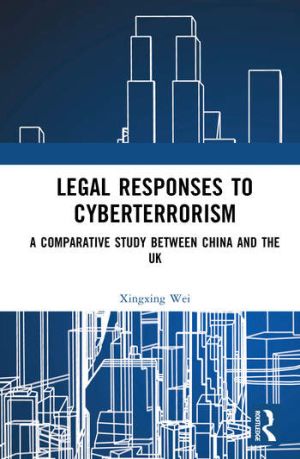
This book provides an in-depth comparative study of legal responses to cyberterrorism in China and the UK to establish whether the relationship between legal systems and legal responses is necessary or contingent in the case of counter-cyberterrorism. The work maps out and compares the basic distinctive characteristics of the legal systems in the two countries, which are characterised in terms of a contrast between ‘rule by law’ and `rule of law’, and basic criminal principles. It critically and comprehensively examines the basic principles of the legal responses to the perceived threats of cyberterrorism and identifies, through comparative analysis, any convergence as well as divergence. The study seeks to develop an understanding of what is necessary and contingent in the case of the relationship between legal systems and legal responses and considers what else might account for patterns of similarity as well as difference.
The book presents a distinct and original contribution to socio-legal studies generally, as well as to criminal justice and criminology in terms of the relationship between legal systems and legal responses to transnational problems, such as cyberterrorism. It will be a valuable resource for academics, researchers and policy-makers working in these areas.